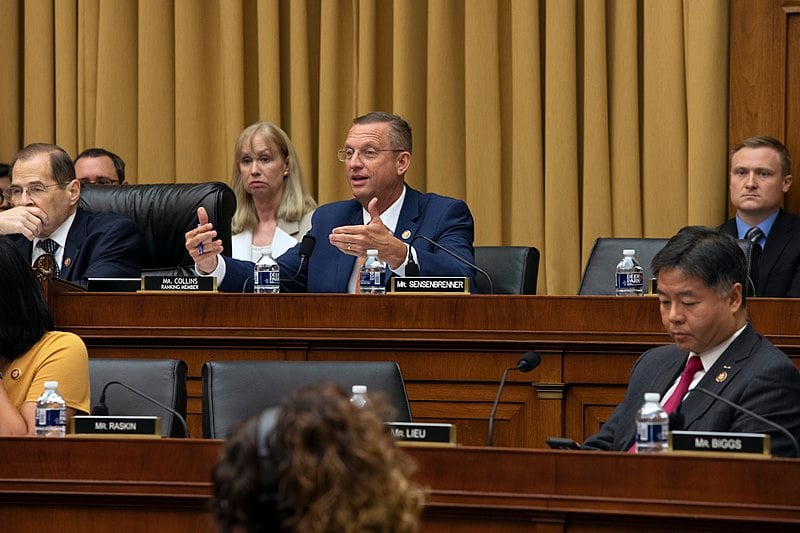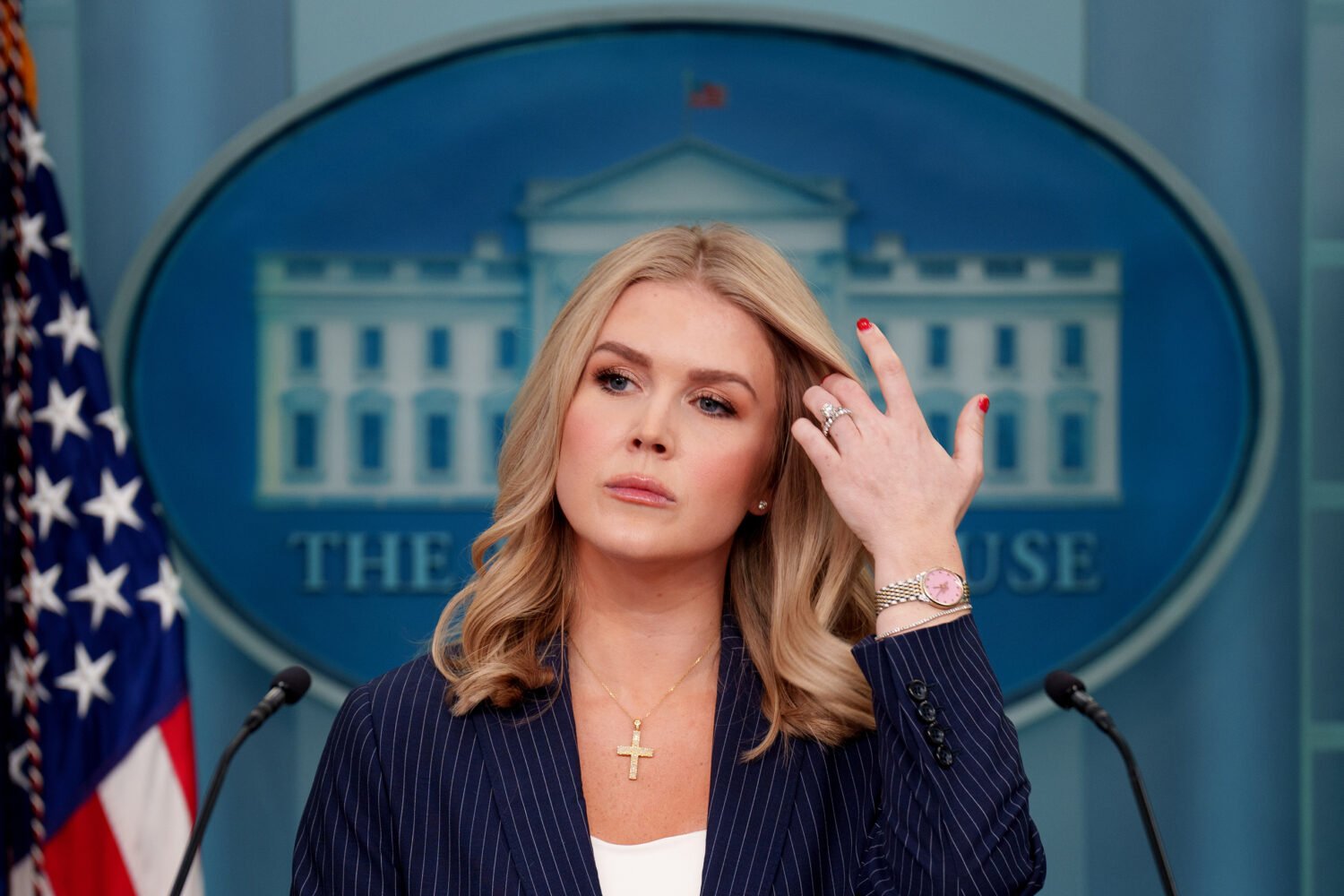About four hours into yesterday’s marathon impeachment hearings, Republican lawyer for the Judiciary Committee Paul Taylor delivered a sharp rebuke to the Democrats’ case for bringing articles of impeachment. For nearly nine hours, the committee would hear from four experts in constitutional law, three of whom testified in favor of impeaching Donald Trump. But Taylor had a trick up his sleeve: damning passages that he said came from two influential books on impeachment, written by Harvard Law Professor Laurence Tribe and Washington superlawyer Neal Katyal, respectively.
The problem: Neither passage was correct.
“Wow. I just watched Republicans lie about my book,” Katyal wrote on Twitter. Tribe had a similar complaint: “They didn’t just leave out the ellipses from my [book],” they also “deleted my conclusion[.]”
The unfaithful readings on live television were over in a flash. But Katyal took to Twitter to show how Taylor had skipped an entire paragraph from Impeach: The Case Against Donald Trump. Taylor had used an ellipsis—thereby wiping out passages where Katyal described how Trump’s son-in-law, Jared Kushner, is no different than Hunter Biden:
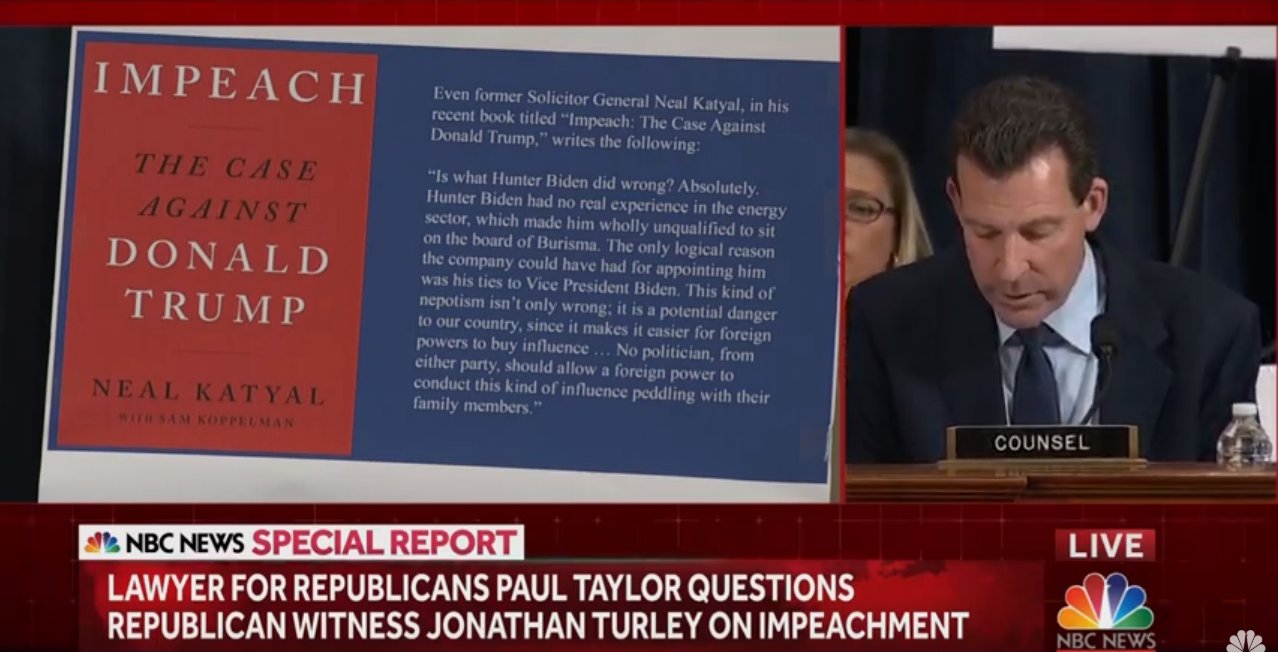
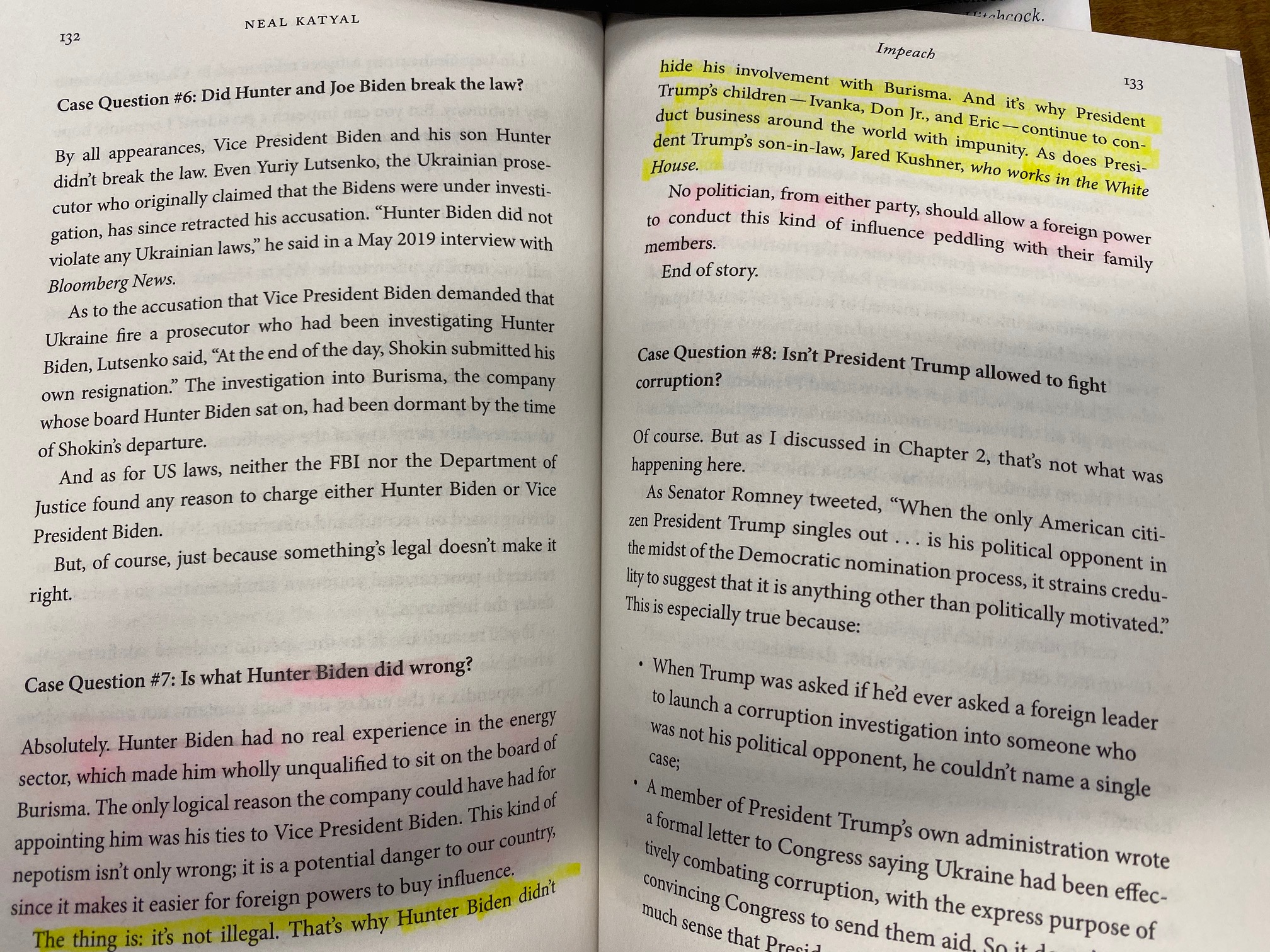
In Tribe’s case, Taylor quoted from page 140 of To End a Presidency: The Power of Impeachment, in which Tribe and co-author Joshua Matz explain the danger to the country if impeachment ever became overly partisan. “When impeachment is purely partisan, or appears that way, it is presumptively illegitimate,” Taylor read. Afterward, he cited the authors’ warning: “One risk of our broken politics is that the House will undertake additional doomed partisan impeachments, a development that would be disastrous for the nation as a whole.”
Taylor then used these quotes to lay up a question for the Republicans’ witness, law professor Jonathan Turley.
But Taylor grossly misrepresented the point Tribe and Matz were making: Perception of partisanship is inherently dangerous when it comes to impeachment. Either party can abuse this dynamic. Without saying so explicitly, Tribe and Matz describe what is essentially a built-in advantage for the President’s party in Congress, so long as they abstain from doing their constitutional duties and paint the opposing party merely as partisan warmongers.
Just one paragraph after Taylor’s selective quote, Tribe and Matz describe the “exception” to their warning about partisanship: “An impeachment along political party lines would be acceptable where the president has captured or corrupted his own political party, and the public has elected the competing party with a mandate supporting removal.”

On the same page, Tribe and Matz point out that “the ideal of impartiality runs both ways”—a principle that “makes the president’s political party particularly responsible for proper use of this power.” They conclude: “Refusing to impeach a known tyrant out of partisan self-interest would constitute a failure of governance at least as profound as urging impeachment solely for partisan reasons.”
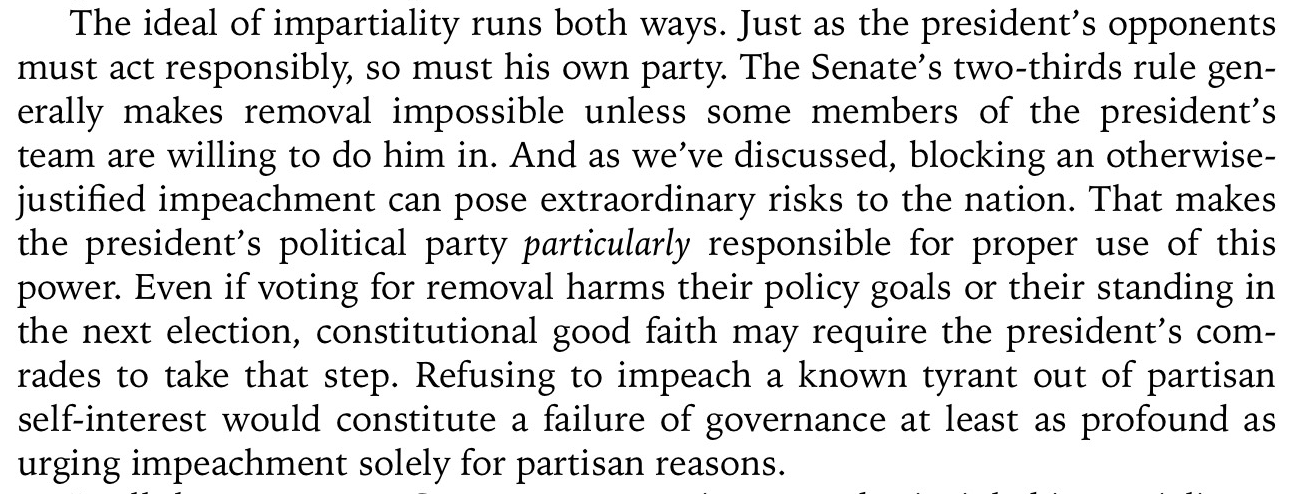
In his statement, Katyal noted that “[if] a lawyer did this, they may face disciplinary action for such a misleading representation of what a source said.”
Watch the full moment from yesterday’s hearings below:

